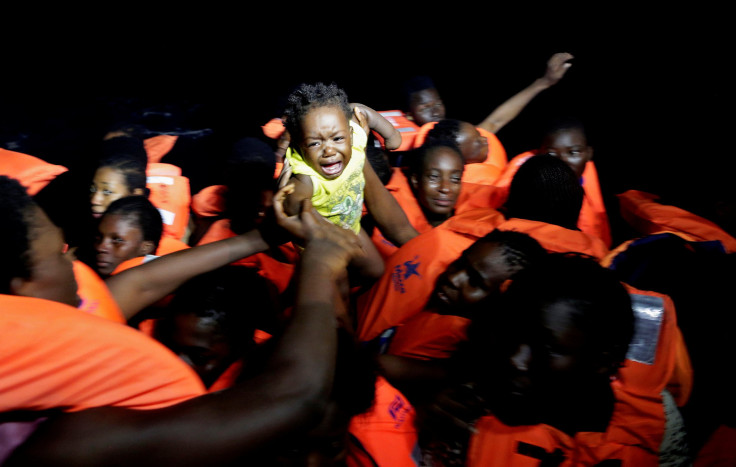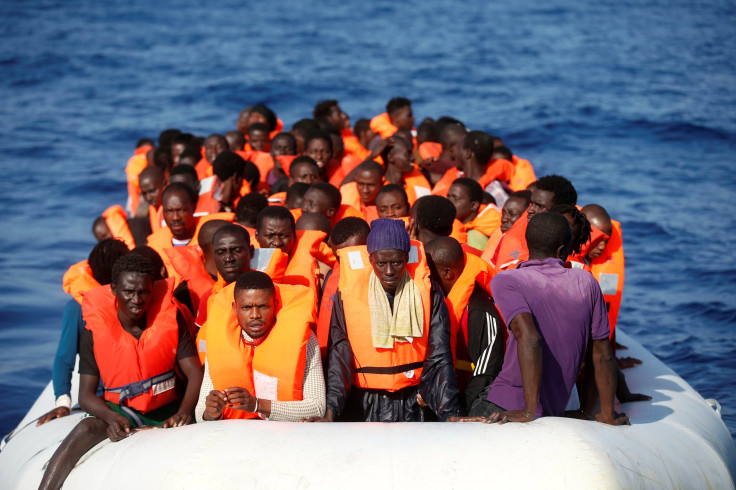Refugee Crisis: Record-Breaking 5,000 Migrants, Refugees Have Drowned In Mediterranean Sea In 2016

There has been an unprecedented rise in drowning deaths in the Mediterranean Sea in 2016 as the death toll rose to more than 5,000 on Thursday, after two inflatable boats packed with nearly 100 migrants capsized near the Libyan coast.
The growing European migrant and refugee crises continues to escalate as winter months fall on the Mediterranean. The latest death toll is the highest in history, up from 3,771 deaths in the Mediterranean Sea in 2015. United Nations officials have cited increasingly harsh weather and the use of weak boats and other drastic measures for the spike in recent deaths. Meanwhile, a wave of populism in part spurred by the ongoing crisis has spurred governments to close their borders to incoming migrants, after 358,000 migrants and refugees have relocated to Europe via sea travel this year alone.
"On average, 14 people have died every single day this year in the Mediterranean trying to find safety or a better life or safety in Europe," William Spindler, spokesman for the United Nations' refugee agency UNHCR, said in a statement.

Still, the worsening conditions for migrants haven’t stopped them from making the voyage to safer conditions. Migrants fleeing persecution, oppression and constant threats of civil war and unrest in West Africa and the Middle East have been forced to use the Mediterranean Sea as a pathway since several European countries like Italy and Greece have opposed sharing the burden of accepting asylum-seekers.
In an apparent attempt to adapt to European countries closing their borders, the United Nations also alleged that migrants are sending vessels packed with upwards of a hundred people at a time out to sea. Multiple vessels arriving at the same time could effectively prevent coastal authorities from turning migrants away, though the agency noted this makes rescue efforts for capsized ships all the more difficult.
"This situation highlights the urgent need for States to increase pathways for admission of refugees, such as resettlement, private sponsorship, family reunification and student scholarship schemes, among others, so they do not have to resort to dangerous journeys and the use of smugglers," the United Nations refugee agency said Friday.
© Copyright IBTimes 2024. All rights reserved.












